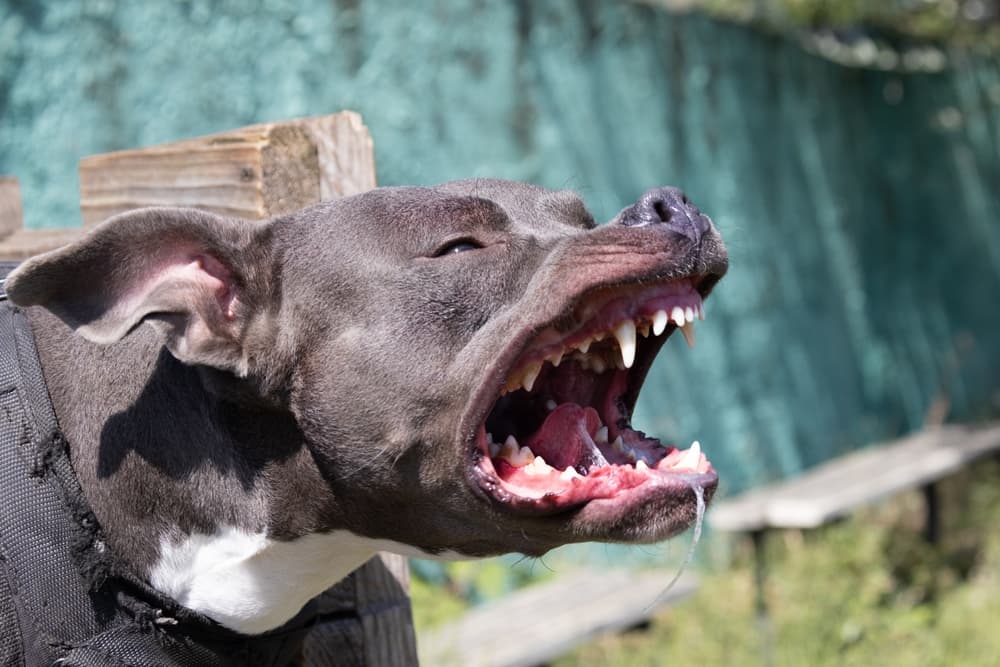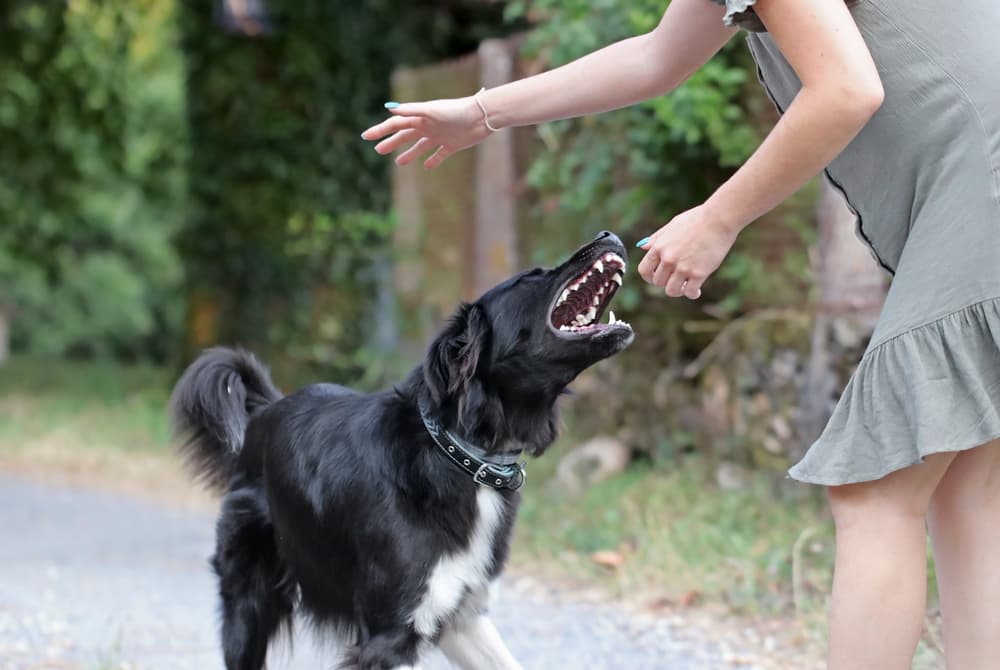Although many people call dogs “man's best friend,” even the most kind and gentle dog can suddenly lash out and bite or attack someone, potentially causing severe injuries.
A person bitten or attacked by someone else's dog or another pet might have the right to seek compensation for medical bills, lost income, and other expenses due to the injury. In some cases, pursuing compensation requires filing a dog bite lawsuit.
Some dog bite injury victims hesitate to file lawsuits because they suffered a bite from a family member's, friend's, or neighbor's dog and fear ruining the relationship. But many hesitate because they worry about the cost of pursuing litigation.
A lawsuit can have many expenses, including court filing fees, records request fees, deposition fees, or expert witness fees. However, most lawyers will take on the burden of these expenses and work on a contingency arrangement. That means they will only collect a fee if they recover compensation first.
The value of any monetary compensation you obtain in a dog bite claim will depend on various factors, including the severity of your injuries, the duration of medical care, the complexity of factual and legal issues in the case, and the availability of insurance coverage. However, experienced dog bite lawyer can improve your chances of successfully recovering maximum compensation.
Schedule a Free Initial Consultation Today!
Understanding Dog Bites and Animal Attacks
Research indicates that more than 337,000 people visit emergency rooms because of dog bites in an average year. The average age of a dog bite victim is around 29 years old, and most victims are male. Younger patients tend to suffer more bites involving the head and neck, likely because their short stature allows dogs to reach these areas easily.

While many dog bites do not require hospitalization, research shows that hospitalizations are most prevalent among bite victims between 75 and 84, with older victims more likely to suffer bites on the upper extremity.
A dog with no history of attacks or aggression can bite a person, even someone who regularly interacts with the dog. Dog bites and other domestic animal attacks can occur for various reasons. When startled or stressed by overstimulation, sensory overload, or illness, animals may lash out and attack.
Animals frequently attack when they feel threatened, even by a person the pet knows. Animals may bite or attack to protect something important, such as their home territory, food, favorite toy, or litter.
A dog bite or attack can inflict various physical and emotional injuries on a person. While a quick nip may only cause a laceration or shallow puncture wound, dogs can cause much more severe injuries from an aggressive bite or an attack.
Dogs that continue attacking after an initial bite can inflict potentially life-threatening injuries if they reach a person's vital head and neck area. Young children face increased risks of severe injuries because their short stature allows dogs to reach their faces and necks.
A dog attack can lead to emotional harm, including post-traumatic stress disorder (PTSD) or the development of cynophobia (fear of dogs).
Liability for Dog Bites
Depending on the circumstances of a dog bite incident, the dog's owner may bear liability for injuries and losses suffered by the bite victim.
Michigan law holds the owner of a dog that bites a person without provocation on public property or lawfully on private property strictly liable for the victim's injuries. This makes the owner liable even if the dog was not previously vicious or the owner did not know of any viciousness.
A person lawfully enters the owner's private property when they perform a duty, such as delivering the mail, or if the owner invited them onto the property. The law does not apply to a person who trespasses on the property or enters the property to commit a crime.
Financial Recovery Available in a Dog Bite Claim
A person who suffers injuries due to a dog bite or attack may have the right to recover compensation for losses they incur due to their injuries.
A dog bite claim might provide financial recovery for an injured victim's:
- Medical treatment and rehabilitation expenses, including emergency treatment, surgeries, hospitalization, medications, or physical and occupational therapy
- Costs of long-term care, including mental health treatment to cope with PTSD, or home health care and personal assistance for prolonged or permanent disabilities caused by dog bite injuries
- Loss of income if the dog bite victim needs to take time off work while recovering from their injuries
- Ongoing and future losses of earning capacity due to temporary or permanent impairments that affect an injured victim's ability to work
- Physical pain and emotional distress
- Reduced quality of life caused by disabilities, ongoing emotional trauma, or permanent scarring and disfigurement
Factors Affecting the Value of a Dog Bite Claim
A dog bite injury victim's monetary compensation in a legal claim may depend on various factors and circumstances.
Some of the most critical factors that affect the value of a dog bite claim include:
- The severity of injuries caused by the dog bite or attack
- The duration and expense of medical treatment and rehabilitation needed to treat dog bite injuries
- Whether the attack leaves a dog bite victim with permanent impairments or disabilities
- Whether dog bite injuries or resulting temporary or permanent disabilities affect an attack victim's ability to work
- Whether a dog bite victim might share some responsibility for causing the attack, such as by provoking or teasing the dog
- The amount of insurance coverage or other financial resources the dog's owner may have to compensate the injured victim for their expenses or losses
- The complexity of any factual or legal questions in a dog bite case, such as whether the victim was lawfully on the dog owner's property
- The relative strength of each party's legal case
- Whether a dog bite victim files a lawsuit and pursues litigation and trial
Costs of Pursuing Litigation After a Dog Bite Injury
Although many dog bite cases settle before going to trial, sometimes a dog bite injury victim must file a lawsuit to pursue compensation from a dog owner who denies liability for the attack and resulting injuries and losses.
A dog bite lawsuit comes with various expenses for both parties. First, the injury victim must pay court costs and filing fees to file a lawsuit and serve the complaint and court summons upon the dog owner.
An injury victim can improve their chances of winning their lawsuit by obtaining legal representation. However, injured persons may worry about paying for an attorney, especially when they already have medical bills and other expenses after taking time from work to recover from injuries.
Many injury lawyers handle dog bite cases on a contingency fee basis.
Under this fee structure, the injured plaintiff does not pay legal fees upfront to hire a lawyer in a contingency fee arrangement.
Instead, the lawyer gets paid a fee only when they win compensation for their client, whether through a settlement or a court judgment. When a dog bite lawyer recovers money for their client, the lawyer receives an agreed-upon percentage of the total compensation recovered as their legal fee.
In addition to filing and legal fees, a dog bite lawsuit may involve
- Copying fees to obtain medical records of an injury victim's treatment
- Deposition costs to obtain testimony from witnesses
- Fees for expert witnesses an injury victim might need to prove their claim:
- Medical experts to explain the injuries and disabilities suffered from a bite or attack
- Financial or vocational experts to explain how those injuries and disabilities might affect a dog attack victim's future earnings.
The costs of a dog bite lawsuit can affect the parties' legal strategies in an injury claim. A party may feel more inclined to settle the case to avoid the time and expense of further litigation, especially if they think the other side has a better chance of winning the case.
Settlement offers typically factor in further litigation costs, the potential size of a plaintiff's verdict, and the risks of losing at trial. As a result, the costs of a dog bite lawsuit can play a huge role in determining the value of an injury claim.
How Insurance Affects a Dog Bite Claim
In most dog bite cases, any compensation an injured victim might receive will come from the dog owner's homeowners' or renters' insurance policy. Many homeowners' and renters' insurance policies cover an owner's liabilities arising from their property, including a dog or other pet.
When a dog bite victim files a claim against the dog owner's insurance, they can expect the insurance company to investigate the claim to determine whether the dog owner and, by extension, the insurance company bears liability for the dog bite.
However, dog bite injury victims should expect that a homeowners' or renters' insurance company will do everything possible to minimize an injury claim or avoid paying claims altogether.
Insurance adjusters use various tactics to reduce the value of injury claims, such as pressuring an injured victim to accept a quick settlement by leveraging the injured person's worries about medical bills or lost income.
Adjusters may also ask injured victims for written or recorded statements where the adjuster can ask questions designed to elicit responses the insurance company may construe as an admission of some fault for the attack.
Insurance companies also ask for medical releases that provide them access to an injured victim's medical history so the insurer can look for evidence of pre-existing or degenerative conditions it can point to as the cause of a claimant's injuries.
Dog attack victims should seek experienced legal counsel to help deal with the insurance companies and demand financial relief for medical bills and other expenses or losses. An attorney can guide an injured victim through the insurance claims process and protect their legal rights and interests.
How Can an Attorney Help You Pursue Financial Recovery After Suffering a Dog Bite?
After suffering severe injuries from a dog bite or animal attack, you may want to focus your time and energy on your medical treatment and rehabilitation to get back to regular life. However, devoting your attention to your recovery can make simultaneously pursuing an injury claim against a dog owner challenging.
A dog bite injury lawyer can help you pursue compensation by handling the details of your case while you focus on healing.
An attorney might assist you with seeking financial relief for your injuries and losses by:
- Investigating the facts and circumstances of the attack to obtain evidence supporting your claim, including evidence proving the dog owner is strictly liable under the law for your injuries and other losses
- Documenting your injuries and expenses to calculate your financial and personal losses from your injuries, including past, ongoing, and future costs
- Evaluating your options for pursuing financial relief, including determining whether the dog owner has liability insurance coverage
- Filing your insurance and legal claims and communicating with insurance adjusters or defense attorneys on your behalf
- Explaining the pros and cons of pursuing settlement negotiations or going to trial so you can make informed decisions in your case
Your Injuries and the Circumstances of Your Case Can Determine Your Financial Recovery in a Dog Bite Injury Claim

If you've suffered injuries from a bite or attack inflicted by someone's dog or other pet, you might recover compensation for your financial and personal losses.
The nature of your injuries and other circumstances of the incident can influence the value of your injury claim. However, pursuing financial relief for dog bite injuries should also account for the costs of a dog bite lawsuit if litigation becomes necessary to seek compensation.
An experienced personal injury attorney can review your case, explain the possible value of your injury claim, and explain the potential expenses of an insurance claim or lawsuit. A lawyer can also advocate for your rights and interests while you focus on treating your injuries and moving forward with your life.


